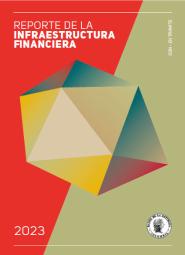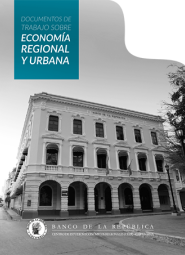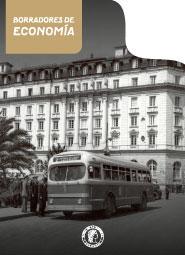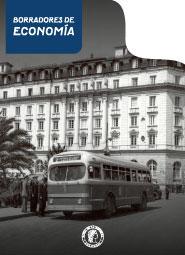Measuring Economic and Social Impacts of Migration in Colombia: New evidence
La serie Borradores de Economía es una publicación de la Subgerencia de Estudios Económicos del Banco de la República. Los trabajos son de carácter provisional, las opiniones y posibles errores son responsabilidad exclusiva del autor y sus contenidos no comprometen al Banco de la República ni a su Junta Directiva.
This paper analyses a comprehensive dataset on migration using robust econometric methodologies to assess a range of economic and social impacts of migration on individuals and households left behind. Our findings indicate that there is no significant impact on labour force participation in households with migrants, but remittances do appear to have a negative effect on labour force participation. Migration (either absent or returned) increases total per capita expenditure by nearly US$35 per month while households that receive remittances increase per capita expenditures by US$49 per month on average. Expenditures in health and education also increase. However, there is no effect on school attendance, while individuals living in a household with an absent migrant are almost 4 per cent less likely to state that their health is good. Households with migration experience are around 8 per cent less likely to keep their immediate families together, with this effect particularly pronounced in the sub-group of households with return migrants. Our policy recommendations emphasize the importance of family reunification, and issue that deserves more decisive policy actions on the part of the Colombian government.
This report was produced for the project Development on the Move: Measuring and Optimising Migrations Economic and Social Impacts led by the Global Development Network (GDN) and the Institute for Public Policy Research (ippr). The opinions expressed here are those of the authors and not of the Banco de la República de Colombia nor of its Board.





















































